Program
We have a great lineup of speakers and participants who will be guiding us through discussions of data journalism through different lenses. View the full schedule here.
Keynote Speakers
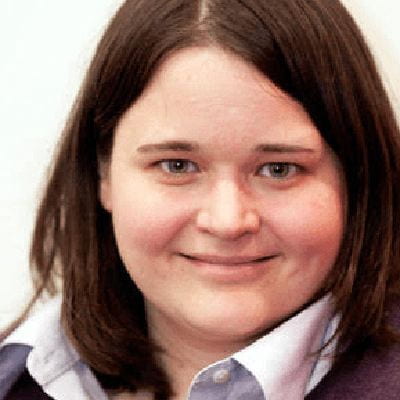
Amanda Cox
Amanda Cox is a data editor at the New York Times. Beginning as a graphics editor in 2005, she has played a central role in the development of the Times’s data visualization efforts. Cox now guides how Computer-Assisted Reporting, The Upshot, Graphics, Interactives, data and statistics interact across the newsroom. In 2009, she was awarded the National Design Award and the Excellence in Statistical Reporting Award from the American Statistical Association in 2012.
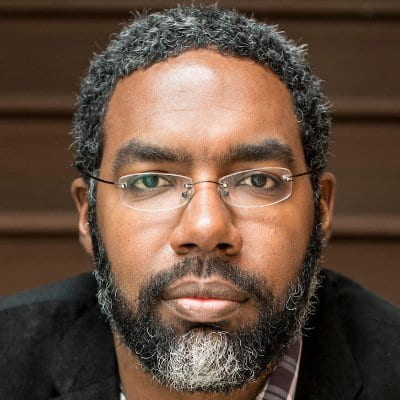
Deen Freelon
Deen Freelon is an associate professor in the UNC Hussman School of Media and Journalism. Focusing on political expression through digital media as well as data science and computational methods for analyzing large digital datasets, Freelon has written both extensive scholarly literature as well as research-grade software. He has served as principal investigator on grants from the Knight Foundation, the Spencer Foundation and the U.S. Institute of Peace.
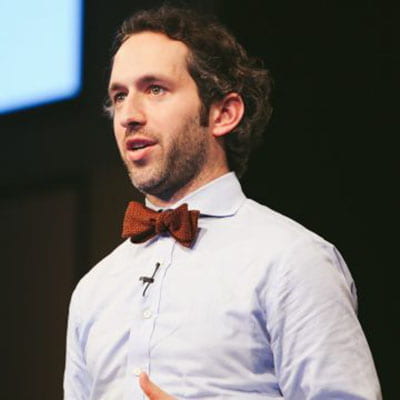
David Rothschild
David Rothschild is an economist at Microsoft Research. Exploring questions of mapping and updating public opinion, the market for news, the effect of advertising, finance, and an economist take on public policy, Rothschild works at the intersection of Economics and Social Science. He is a fellow at the Applied Statistics Center at Columbia and the Penn Program on Opinion Research and Election Studies.
Invited Panel: Political Forecasting Meets Journalism
Journalists are increasingly producing complex forecasting models to predict election results and other politically relevant outcomes. Such models hinge on available public opinion data and known regularities in political behavior, but presenting their predictions in easily interpretable ways is challenging. Panelists will share their experiences as journalists who are deeply involved in modeling and explaining political phenomena to help newsreaders and others make better decisions.

David Byler
Washington Post
Bio
David Byler is a data analyst and political columnist focusing on elections, polling, demographics and statistics. He joined The Washington Post in 2019. Before joining The Post, Byler was chief elections analyst and a staff writer at the Weekly Standard, where he covered House, Senate, gubernatorial and presidential elections using statistics and other quantitative tools. He previously worked as an elections analyst at RealClearPolitics.
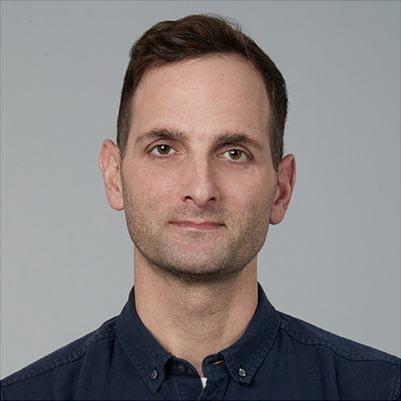
Micah Cohen
FiveThirtyEight
Bio
Micah Cohen is FiveThirtyEight’s managing editor and previously wrote for FiveThirtyEight at The New York Times.

Natalie Jackson
Public Religion Research Institute
Bio
Natalie Jackson, Ph.D., is the Director of Research at PRRI. She has spent the last 15 years developing extensive expertise in the survey research process as well as quantitative political science. Her research on how people form opinions, as well as on the election polling and forecasting landscape has appeared in peer-reviewed journals and edited volumes. Natalie serves on councils for the American Association for Public Opinion Research and the National Capitol Area Political Science Association, and the Careers Diversity Committee for the American Political Science Association, and is on the editorial boards of Social Science Quarterly and PS: Political Science and Politics. In addition, she teaches graduate-level research methods at American University as an adjunct professor and is currently editing a book on nonacademic career options for social science PhDs. Prior to joining PRRI, Natalie held senior and management positions at JUST Capital, HuffPost, and the Marist Institute for Public Opinion.

Nick Diakopoulos (Chair)
Northwestern University
Bio
Nicholas Diakopoulos is an Assistant Professor in Communication Studies and Computer Science (by courtesy) at Northwestern University where he is Director of the Computational Journalism Lab (CJL). He is also a Tow Fellow at Columbia University School of Journalism as well as Associate Professor II at the University of Bergen Department of Information Science and Media Studies. He received his Ph.D. in Computer Science from the School of Interactive Computing at Georgia Tech where he co-founded the program in Computational Journalism. His research is in computational and data journalism with active research projects on (1) algorithmic accountability and transparency, (2) automation and algorithms in news production, and (3) social media in news contexts. He is the author of Automating the News: How Algorithms are Rewriting the Media from Harvard University Press, and the co-editor of Data-Driven Storytelling, from CRC Press.
Invited Panel: Conveying a Clear Message and Uncertainty with Graphics
Traditional newspaper data graphics have used simplified charts to convey one or two core messages. However, most data and model predictions are subject to uncertainty. Responsible presentation of data to newsreaders calls for also communicating such uncertainty to support more informed decisions. The panelists will discuss the tension between goals of parsimony and narrative versus uncertainty and complexity, sharing strategies and examples from their own work.

Jen Christiansen
Scientific American
Bio

Catherine D’Ignazio
MIT
Bio
Catherine D’Ignazio is an Assistant Professor of Urban Science and Planning in the Department of Urban Studies and Planning at MIT. She is also Director of the Data + Feminism Lab which uses data and computational methods to work towards gender and racial equity. D’Ignazio is a scholar, artist/designer and hacker mama who focuses on feminist technology, data literacy and civic engagement. She has run reproductive justice hackathons, designed global news recommendation systems, created talking and tweeting water quality sculptures, and led walking data visualizations to envision the future of sea level rise. With Rahul Bhargava, she built the platform Databasic.io, a suite of tools and activities to introduce newcomers to data science. Her forthcoming book from MIT Press, Data Feminism, co-authored with Lauren Klein, charts a course for more ethical and empowering data science practices.
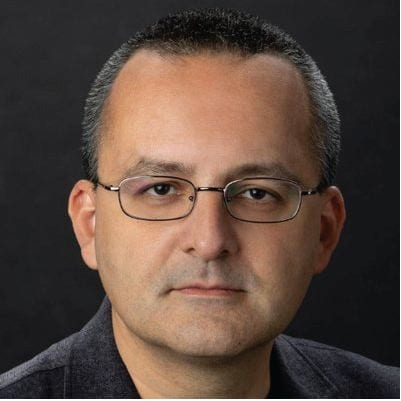
Alberto Cairo (Chair)
University of Miami
Bio
Alberto Cairo is the Knight Chair in Visual Journalism at the University of Miami and director of visualization at UM’s Center for Computational Science. After a long career in journalism in Spain (elmundo.es) and Brazil (Editora Globo) he became a professor, consultant, and author. He has consulted for companies and institutions such as Google, Microsoft, the Congressional Budget Office, and the Centers for Disease Control and Prevention. He is the author of numerous books about visualization. The most recent ones are ‘How Charts Lie: Getting Smarter About Visual Information’ (2019), and ‘The Truthful Art: Data, Charts, and Maps for Communication’ (2016). His Twitter account is @albertocairo and his weblog is www.thefunctionalart.com.
Panel: Politics
Moderator: Meg Heckman, Northeastern University (*presenter)
Daniel Muise, Homa Hosseinmardi, Baird Howland, Markus Mobius, David Rothschild and Duncan Watts.
Growing Separation in the Television News Audience: Evidence from Three Years of Nielsen Panel Data
Irena Fischer-Hwang, Dylan Grosz, Xinlan Emily Hu, Anjini Karthik and Vivian Yang.
Disarming Loaded Words: Addressing Gender Bias in Political Reporting
Victor Soares Bursztyn and Larry Birnbaum.
Thousands of Small, Constant Rallies: A Large-Scale Analysis of Partisan WhatsApp Groups
*Rahul Bhargava, Cindy Bishop and Ethan Zuckerman.
Mapping and Visualizing News Images for Media Research
Panel: Countering Noise, Bias & Uncertainty
Moderator: Sue Robinson, University of Wisconsin-Madison (*presenter)
*Sean Fischer, Kokil Jaidka and Yphtach Lelkes.
Topical Biases in Local News Curation: An Audit of Google News.
Brian Felipe Keith Norambuena, Michael Horning and Tanushree Mitra.
Evaluating the Inverted Pyramid Structure through Automatic 5W1H Extraction and Summarization
*Yea Seul Kim, Jake Hofman and Dan Goldstein.
Effectively communicating effect size.
*Daniel Trielli and Nicholas Diakopoulos.
How Journalists Can Systematically Critique Algorithms
Panel: Data & Modeling in the Newsroom
Moderator: Meredith Broussard, New York University (*presenter)
*Jeff Kao and *Jack Gillum.
Reverse-Engineering an Audio Aggression Detection Algorithm | How we tested and analyzed software that claims to spot aggression from your voice (ProPublica)
Jonathan Stray and Karen Hao.
Interactive Visualization of Fairness Tradeoffs (MIT Tech Review)
*Leonard Bronner, Al Johri and Jeremy Bowers.
Predicting Elections using Live Data at The Washington Post (The Washington Post)
*James Randerson, Karl Bjelland and Karl Roos.
POLITICO Pro Intelligence: A novel digital platform for customizable analysis of political, policy and legislative data



